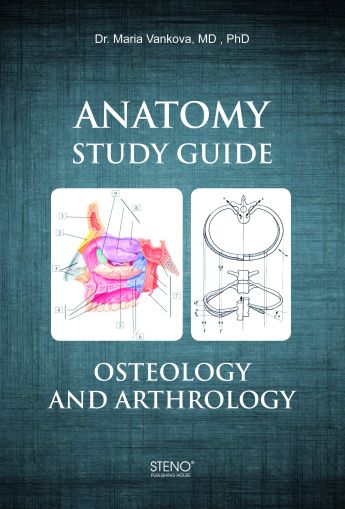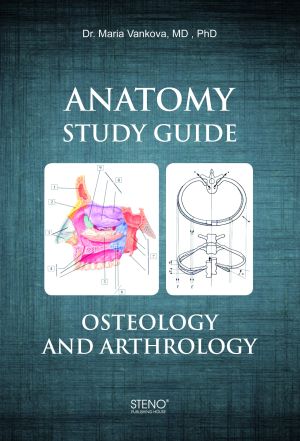The subject “HUMAN ANATOMY” is a complex and voluminous one and numerous anatomical terms have to be learned and put into use within a short period of time. It usually starts with the study of bones (osteology) and articulations (arthrology); during these classes the anatomical terminology is gradually introduced.
During this initial period of studying anatomy it is crucial for the students to come to class fully prepared on the concrete topics. This Study Guide for Osteology and Arthrology aims to outline the exact scope of of the knowledge required, to facilitate students’ preparation prior to class, and thus to ensure an effective learning process. By introducing tests and questions to be answered it stimulates the student’s active approach and long term retention of the acquired knowledge.
Here is how this study guide should be used:
First: Prepare the topic for the upcoming class from your textbook, lecture notes, anatomical atlases etc.
Second: Go through the guide and accomplish the required tasks. Fill in the gaps in your knowledge.
Third: You will be required to bring the guide to class and may be asked to present it to you professor. Feel free to pose questions and clarify not well understood facts. Remember that this is your personal notebook and you are free to profit from it according to your personal style - make notes, draw schemes, etc..
The intelligent and creative use of the guide will inevitably lead to a more comprehensive knowledge of this specific matter, and creates a solid base for the further anatomical studies.
DR. MARIA VANKOVA, MD, PhD
CONTENTS
PREFACE 4
OSTEOLOGY 5
1. INTRODUCTION TO ANATOMICAL TERMINOLOGY.
BONES OF THE VERTEBRAL COLUMN AND THORAX 5
2. BONES OF THE SHOULDER THE FREE UPPER LIMB 18
3. BONES OF THE PELVIS AND FREE THE LOWER LIMB 25
4. SKULL : OCCIPITAL, PARIETAL, FRONTAL
AND SHENOID BONES 37
5. TEMPORAL, MAXILLA, ETHMOID, PALATINE BONES,
VOMER ETC. 45
6. SKULL AS A WHOLE 54
ARTHROLOGY AND IMAGING 65
1. INTRODUCTION TO ARTHROLOGY. CONNECTIONS
OF THE BONES OF THE SKULL. CRANIOVERTEBRAL JOINTS. 65
2. JOINTS OF THE SPINE AND THORAX 78
3. JOINTS OF THE SHOULDER AND FREE UPPER LIMB 88
4. JOINTS OF THE PELVIS AND FREE LOWER LIMB 98
PREFACE AND RECOMENDATIONS FOR USE





